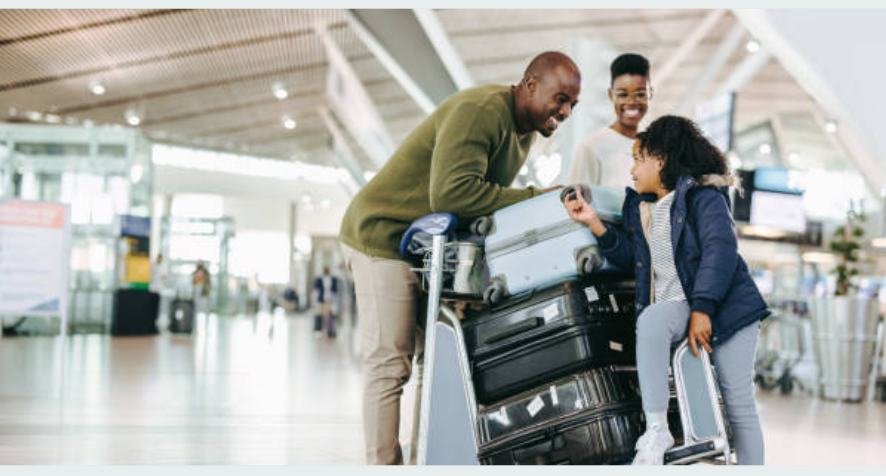linkedin.com/in/shadrachswantekambai
Fostering Growth, Innovation, and Sustainability in Airline Operations

- Key Factors That Passengers Value And Prioritize When Flying
- Exceptional Service:
- Safety and Reliability:
- Excellent Customer Service:
- Value for Money:
- Seamless Booking and Check-in Processes:
- Comfortable and Clean Cabins:
- In-flight Entertainment and Connectivity:
- Sustainability:
- Conclusion
Airline passengers have evolving expectations when it comes to their travel experiences. As the aviation industry continues to advance, airlines must understand and cater to the desires of their customers, particularly passenger culture, which varies across demographics, regions, and travel purposes. Cultural preferences can influence expectations related to food options, language assistance, religious accommodations, and respect for diverse customs. Airlines must adapt to passenger culture to provide a memorable and satisfying travel experience.
Key Factors That Passengers Value And Prioritize When Flying
Exceptional Service:
Exceptional service in the airline service context refers to the delivery of outstanding and memorable customer experiences throughout every stage of a passenger’s journey. It goes beyond meeting basic expectations and involves exceeding passenger needs, providing personalized attention, and creating a positive and lasting impression.
Passengers appreciate friendly and attentive customer service throughout their journey. From the helpful staff at check-in counters to courteous flight attendants, airlines should prioritize providing a positive and personalized experience for every passenger.
Safety and Reliability:
Above all, passengers want to feel safe during their journey. Airlines must prioritize safety measures, regularly maintain their aircraft, and communicate any potential disruptions promptly. Reliability is equally essential; passengers expect airlines to adhere to their schedules and minimize delays or cancellations.
Excellent Customer Service:
In the context of airlines, excellent customer service means going above and beyond to meet passengers’ needs and exceed their expectations at every touchpoint, from booking to post-flight follow-up.
Passengers appreciate friendly and attentive staff who are knowledgeable, approachable, and responsive to their needs. Prompt and courteous assistance during check-in, boarding, and throughout the flight leaves a lasting impression on passengers.
Value for Money:
Value for money in the context of airline services refers to the perception that passengers have of receiving a fair and satisfactory return on their investment or expenditure when choosing an airline. It goes beyond the ticket price and encompasses the overall quality, benefits, and experiences provided by the airline in relation to the cost incurred.
Passengers seek airlines that provide good value for their money. This includes competitive pricing, transparent fee structures, and additional benefits such as loyalty programs or complimentary services.
Delivering excellent customer service by airlines can foster customer loyalty, build a positive brand image, and establish a strong competitive advantage in the industry.
Cliqjets consulting
Seamless Booking and Check-in Processes:
Streamlining the booking and check-in processes is essential. Passengers appreciate user-friendly online platforms that make searching for flights, comparing prices, and selecting seats easily. Additionally, efficient and hassle-free check-in procedures, including online and mobile check-in options, contribute to a positive experience.
Comfortable and Clean Cabins:
Comfort plays a significant role in passenger satisfaction. Airlines that offer comfortable seating arrangements with adequate legroom, adjustable headrests, and personal space are highly valued. Cleanliness is paramount, with passengers expecting well-maintained cabins and lavatories throughout their journey.
In-flight Entertainment and Connectivity:
Passengers seek a variety of entertainment options to enhance their flying experience. Access to a wide range of movies, TV shows, music, and games through seatback screens or personal devices is desirable. Moreover, reliable in-flight Wi-Fi enables passengers to stay connected, work, or entertain themselves during the flight.
Sustainability:
Sustainability in the airline service context refers to the commitment of airlines to minimize their environmental impact, promote eco-friendly practices, and contribute to the long-term well-being of the planet. It encompasses various initiatives and strategies aimed at reducing carbon emissions, conserving resources, and implementing responsible practices throughout the entire airline operation.
As environmental awareness grows, passengers are increasingly concerned about an airline’s commitment to sustainability. They appreciate eco-friendly initiatives, fuel-efficient aircraft, and carbon offset programs that mitigate the environmental impact of air travel.
Conclusion
To succeed in a competitive aviation landscape, airlines must prioritize the wants and needs of their passengers. By focusing on safety, providing seamless booking processes, prioritizing comfort and cleanliness, offering entertainment options and connectivity, and delivering excellent customer service, airlines can create a positive and memorable travel experience that meets and exceeds passengers’ expectations. Ultimately, understanding and catering to these desires will help airlines build lasting customer loyalty and thrive in the industry.





Informative article, just what I was looking for. https://camillacastro.us/forums/viewtopic.php?id=341303
An impressive share! I have just forwarded this ontfo a coworker wwho was doing
a little homework on this. And he in facct bought
me breakfast simply because I stumbled upon it for him…
lol. So allow me to rwword this…. Thanks for the meal!!
But yeah, thanks for spending time to discuss this matter
here on your blog. https://integramais.com.br/2024/05/21/%d0%be-%d0%b1%d0%b5%d1%82%d0%bc%d0%b0%d1%82%d1%87/
Write more, thats all I have to say. Literally, it seems as though
you relird on the ideo to make your point. You obviousy kknow what youre takking about, why throw away
your intelligence on just posting videos to yohr blog when you could be giving us something informative to read? https://lgukapangan.gov.ph/2024/05/21/%d0%ba%d0%b0%d0%ba-%d0%b7%d0%b0%d1%80%d0%b5%d0%b3%d0%b8%d1%81%d1%82%d1%80%d0%b8%d1%80%d0%be%d0%b2%d0%b0%d1%82%d1%8c%d1%81%d1%8f-%d0%bd%d0%b0-bet-match/